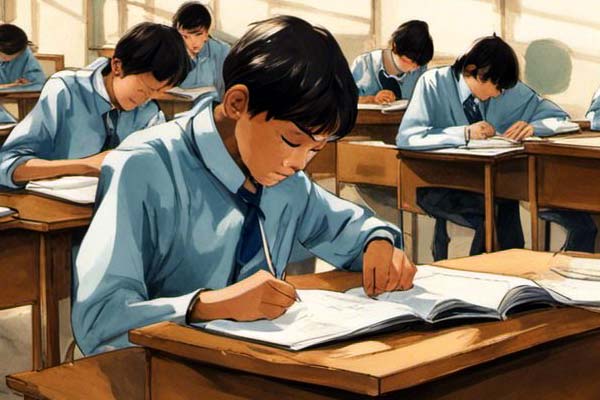International Baccalaureate: The Ultimate Guide to a World-Class Education
A globally recognized educational program, the International Baccalaureate (IB) holds prestige and is acknowledged by leading universities worldwide.
It is designed to shape students into well-rounded individuals, fostering critical thinking, effective communication, and active community participation.
The program presents a rigorous and inclusive curriculum, motivating students to enhance their intellectual, personal, and social abilities.
The IB program is designed for students aged 3 to 19 and is offered in over 150 countries worldwide. The program is divided into four different levels: Primary Years Program (PYP), Middle Years Program (MYP), Diploma Program (DP), and Career-Related Program (CP).
Each level is designed to meet the unique needs of students at different stages of their education.
The IB program is famous for being tough academically and giving a well-rounded education. It helps students think critically, deal with complex issues, and see the world from a global viewpoint.
Engaging in extracurricular activities and community service projects is strongly encouraged for students in the program. This involvement helps nurture the growth of their personal and social skills.
History and Development
The International Baccalaureate (IB) was founded in 1968 as a nonprofit foundation in Geneva, Switzerland.
It was created by educators at the International School of Geneva, including Alec Peterson, George Walker, and Olli-Pekka Heinonen. The IB was established to provide a rigorous and internationally recognized education for students worldwide.
The IB began as a pilot program in 12 schools in 12 different countries. Its initial focus was on the IB Diploma Program, which aimed to develop inquiring, knowledgeable, and caring young people equipped to succeed in a rapidly changing world.
The program was based on a pedagogy that promoted critical inquiry and was applied to all IB Diploma Programme subjects.
🌟 Hey Students! 🚀 Ready for the ultimate experience? Join us on Studentsinside.com's Facebook, YouTube, WhatsApp, and LinkedIn. Click now for tips, fun, and success vibes! 🌈✨ #StudentLife #JoinUs
Over the years, the IB has expanded its offerings to include other programs, such as the Middle Years Programme (MYP) and the Primary Years Programme (PYP). Today, the IB is recognized as a global leader in international education and is offered in over 150 countries.
The IB has gained acknowledgment from global entities like UNESCO and the Council of Europe for its dedication to fostering intercultural understanding and international-mindedness.
Its mission is to nurture curious, knowledgeable, and compassionate young individuals who contribute to building a more harmonious world through respect and appreciation for diverse cultures.
IB Programmes
The International Baccalaureate (IB) provides students aged 3 to 19 with four rigorous, high-quality educational programs.
These programs aim to foster both personal growth and academic success by cultivating critical thinking, the ability to pose thoughtful questions, and interdisciplinary thinking.
Diploma Programme
The Diploma Programme is designed for students aged 16 to 19, and it is a two-year program that leads to the full IB Diploma. The program is well-known for its rigorous academic curriculum, which covers six subject groups: Language and Literature, Language Acquisition, Sciences, Mathematics, Individuals and Societies, and the Arts.
In addition to the academic curriculum, students must complete three core requirements: the Extended Essay, Theory of Knowledge, Creativity, Activity, and Service (CAS).
Middle Years Programme
Crafted for students aged 11 to 16, the Middle Years Programme is a comprehensive framework that integrates academic challenges with vital life skills.
The program aims to cultivate intellectual, personal, emotional, and social skills through five key areas—Approaches to Learning, Community and Service, Human Ingenuity, Environments, and Health and Social Education.
Its ultimate goal is to empower students to excel in a rapidly interconnected and globalized world.
Primary Years Programme
Targeting children aged 3 to 12, the Primary Years Programme emphasizes the holistic development of each child. This approach is not confined to the classroom; it extends to the wider world. The program aims to foster intellectual, personal, emotional, and social skills in students.
These skills are vital for adapting to the challenges of an increasingly globalized world, enabling students to lead fulfilling lives, engage in continuous learning, and excel in their future endeavors.
Career-Related Programme
For students aged 16 to 19, the Career Related Programme mixes IB Diploma courses with career-focused studies and a unique core. It helps students gain the skills and knowledge they need for success in college and the working world.
Curricula and Assessment
The International Baccalaureate (IB) presents a thorough and demanding curriculum to equip students for success in higher education and beyond.
It is organized into three key components: Theory of Knowledge (TOK), Extended Essay (EE), and Creativity, Activity, and Service (CAS), all geared towards nurturing critical thinking, research skills, and a global perspective.
Comprising six subject groups—Language and Literature, Language Acquisition, Individuals and Societies, Sciences, Mathematics, and the Arts—the IB curriculum provides a variety of courses in each group.
These courses, taught by qualified and experienced instructors, are intentionally crafted to be both challenging and captivating, promoting the growth of students’ intellectual capabilities.
Assessment is an integral part of the IB curriculum. Students are assessed internally and externally, and their performance is measured against rigorous international standards.
Internal assessments are conducted by teachers and are based on coursework and other assignments. The IB conducts external assessments and includes written exams and other assessment forms.
The IB also offers a range of assessments for students who are studying national curricula. These assessments are designed to help students earn recognition for their achievements and to prepare them for success in higher education and beyond.
Teaching and Learning Approach
The International Baccalaureate (IB) has a distinctive method of imparting knowledge, rooted in the belief that acquiring the skill of learning is crucial for a student’s life, both within and outside the school environment.
This approach aims to foster critical thinking, independent and interdisciplinary thought, research proficiency, and a foundation in inquiry-based learning.
Within IB programs, learners are supported in honing thinking, communication, research, self-management, and social skills.
The teaching style emphasizes delving into significant content, cultivating disciplinary and interdisciplinary comprehension aligned with rigorous international standards. It operates within global contexts, aiding students in grasping diverse languages and cultures.
IB’s teaching methodologies focus on inquiry, center around conceptual understanding, occur in local and global settings, stress effective teamwork and collaboration, cater to diverse learner needs, and are shaped by ongoing assessment.
Educators are encouraged to cultivate effective teaching and learning strategies that honor each student’s unique learning journey.
Acknowledging each student’s individuality, the IB underscores the importance of teachers being adaptable and flexible in their approach to addressing the distinct needs of every learner.
Recognition and Advantages
The International Baccalaureate (IB) holds considerable value due to its global acceptance by universities and higher education institutions.
Students benefit from the flexibility to shape their educational journey, fostering the acquisition of essential skills and confidence for future success.
Additionally, IB empowers educators as facilitators of learning excellence, enabling collaboration with dedicated colleagues in a fulfilling career within a robust global network.
IB students can receive college credit for their work, saving them time and money in the long run. The IB has a long-standing reputation for maintaining high standards of academic rigor, which is why universities and colleges value IB diplomas and certificates.
Moreover, the IB helps universities develop effective admissions and recognition policies so that IB students can gain equitable and competitive offers. Universities and colleges worldwide recognize that IB programs offer internationally accredited curricula and qualifications.
Well-prepared for higher education, IB students possess a skill set highly coveted by universities and employers. The IB learner profile, integral to all IB programs, instills valuable skills in high demand in students.
These skills include critical thinking, research capabilities, effective communication, collaboration, and independent collaboration.
Global Presence
The International Baccalaureate (IB) is a global leader in international education. With its headquarters in Cardiff, Wales, the organization has a presence in countries worldwide.
There are IB World Schools across the globe, and universities worldwide recognize the strength of its Diploma Programme.
Supporting schools and educators, the IB operates regional offices in Cardiff, Geneva, The Hague, and Washington DC.
The IB Global Centre, which used to be in Bethesda, Maryland, and New York City, is now open in Washington, DC, since 2023.
The IB has a strong presence in Asia, with IB World Schools in Singapore, Japan, and the Philippines. The organization also works with the International Student Exchange Services (ISES) to provide opportunities for students to study abroad and experience different cultures.
IB World Schools in over 150 countries provide one or more IB programs. These programs include the Primary Years Programme (PYP), Middle Years Programme (MYP), Diploma Programme (DP), and Career-related Programme (CP). Currently, there are over 6,000 IB World Schools worldwide.
In the United States, the IB is represented by the IB North America (IBNA) office, which supports schools and educators in the US and Canada. The IBNA office also works with universities in North America to promote the recognition of IB qualifications.
CAS Component
The Creativity, Activity, Service (CAS) component is essential to the International Baccalaureate (IB) Diploma Programme.
It is designed to encourage students to engage in activities that promote personal and interpersonal growth alongside their academic studies. CAS is not formally assessed, but it is required to complete the Diploma Programme successfully.
The three strands of CAS, Creativity, Activity, and Service, are intended to balance the academic rigor of the Diploma Programme.
The Creativity strand focuses on artistic and imaginative pursuits, while the Activity strand encourages physical activity and healthy living. The Service strand is designed to promote community service and social responsibility.
Students can engage in CAS activities individually or in groups within and outside school. They’re encouraged to select activities that push their boundaries and foster the growth of new skills and interests.
The CAS program is adaptable, allowing customization of the experience according to each student’s unique needs and interests.
Examples of CAS actions include:
- Volunteering at a local charity.
- Participating in a sports team.
- Learning a musical instrument.
- Organizing a fundraising event.
Students are required to document their CAS activities and reflect on their experiences. This documentation is reviewed by their CAS supervisor, who provides guidance and support throughout the program.
Comparison with Other Education Systems
The International Baccalaureate (IB) program is often compared to other education systems, such as the American curriculum, Advanced Placement (AP), and International General Certification of Secondary Education (IGCSE).
Research suggests that, in many cases, students in IB programs perform better than students taking other qualifications.
A recent global study explored the academic performance of students in the Primary Years Programme (PYP) and Middle Years Programme (MYP), revealing that those in the International Baccalaureate (IB) system surpassed their non-IB counterparts in reading, math, and science.
Notably, IB students were more inclined to pursue further education and boasted superior university acceptance rates.
The IB program differs from the American curriculum by emphasizing critical thinking in learners of all ages. It cultivates a mindset that encourages questioning assumptions and promotes a culture of intellectual challenge.
Operating independently from government and national systems, it integrates best practices from global schools and research. In contrast, the standardized American curriculum primarily focuses on reading students for college and career paths.
While Advanced Placement (AP) courses and IB programs share educational advantages, they adopt distinct approaches. AP courses gear students for college-level challenges and enable them to accrue college credits in high school.
Conversely, the IB program is a holistic and demanding educational framework prioritizing critical thinking, research capabilities, and global awareness.
The IGCSE curriculum is another popular international education system often compared to the IB program. While both programs offer a rigorous and comprehensive education, the IB program focuses on developing critical thinking skills and global awareness. At the same time, the IGCSE curriculum is more focused on preparing students for university-level work.
Role of Arts and Music
The International Baccalaureate (IB) program recognizes the importance of arts and music education in fostering critical thinking, creativity, and self-expression.
The arts subjects, such as visual arts, theater, dance, and music, are integral to the IB curriculum, and students are encouraged to explore and develop their artistic skills and knowledge.
The IB art program helps students explore different types of art across time and cultures. It aims to make students confident and skilled in expressing themselves.
The goal is to encourage critical thinking in the arts and to make students knowledgeable, curious, caring, and compassionate.
The music part of the IB program teaches students about music history, theory, and performance. Students can compose, perform, and analyze music to improve their skills.
The program also highlights the importance of music in various cultures, helping students appreciate the diversity of musical traditions worldwide.
The IB program recognizes that arts and music education can significantly impact student’s academic and personal development.
Studies have shown that students who study the arts and music tend to perform better academically, have higher levels of creativity, and are more likely to be engaged and motivated learners.








